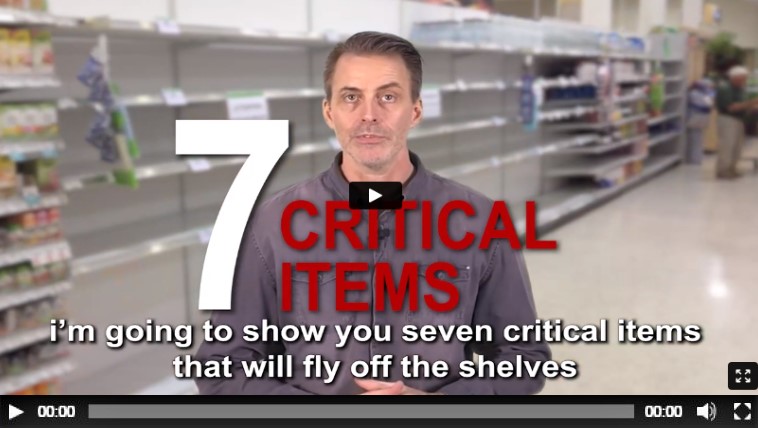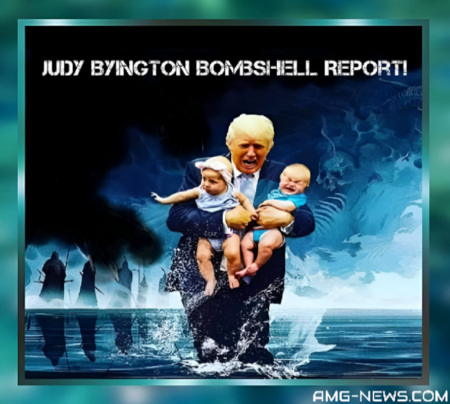Urgent Alert: UK Government Warns Citizens to Stock Up on Food and Water Amid Rising Threats – What Do They Know That We Don’t?
Ready to uncover the truth? Sick of the lies? Join our Telegram Channel now. It’s time for the real story! My gratitude to all my readers!
The UK Government’s Urgent Call: Stock Up on Essentials Now
The UK government has launched an unprecedented campaign urging citizens to prepare for emergencies by stocking up on food and water. This initiative is part of a broader effort to enhance the nation’s resilience against a variety of looming threats, including biosecurity crises, flooding, power outages, and the possibility of another pandemic.
As part of this initiative, a new website providing comprehensive advice on emergency preparedness has been unveiled. The site is a critical resource for all UK residents, offering guidelines and recommendations on how to protect themselves and their families in times of crisis. But why is this happening now? And should we expect similar measures to be adopted in the United States?
Understanding the Threats: Why the Urgency?
The UK government’s message is clear: be prepared. The urgency of this campaign stems from a confluence of potential threats that could disrupt daily life significantly. Let’s delve into the specifics of these threats:
- Biosecurity Crises: In our interconnected world, the risk of biosecurity threats is ever-present. This could range from outbreaks of deadly diseases to bioterrorism. The COVID-19 pandemic has already shown us how a virus can bring nations to their knees. Enhanced biosecurity measures and personal preparedness are crucial in mitigating such risks.
- Flooding: Climate change has led to more frequent and severe weather events, including flooding. The UK, with its extensive coastline and numerous rivers, is particularly vulnerable. Flooding can disrupt transport, damage homes, and lead to long-term economic consequences.
- Power Outages: The modern world is heavily dependent on electricity. A power outage, whether due to a cyberattack, technical failure, or natural disaster, can cripple essential services. Ensuring that households have adequate supplies can help mitigate the impact of such disruptions.
- Another Pandemic: The specter of another pandemic looms large. Lessons learned from COVID-19 are driving governments to encourage citizens to be more self-reliant and prepared for future outbreaks. Stocking up on essentials is a critical component of this strategy.
 The Government’s Role: Forewarning and Responsibility
The Government’s Role: Forewarning and Responsibility
When the government issues a message with such gravity, it’s not just a casual suggestion. It’s a call to action, a forewarning of potential disruptions that could affect everyone. The government has access to intelligence and resources that the average citizen does not, which means they likely have insights into emerging threats that are not yet public knowledge.
Critics might argue that the government itself might have a hand in creating or exacerbating some of these crises, whether through policy decisions or inadequate preparations. Regardless, the emphasis now is on ensuring that citizens are not caught unprepared.
Expecting Similar Measures in the United States?
It’s not far-fetched to anticipate that the United States might adopt similar measures. The US faces its own set of challenges, including natural disasters, cyber threats, and public health emergencies. The idea of encouraging citizens to be self-sufficient in times of crisis is universal and prudent.
The US government has also periodically issued guidelines on emergency preparedness, such as the Federal Emergency Management Agency’s (FEMA) recommendations. However, a campaign with the intensity and urgency similar to the UK’s could very well be on the horizon, especially if global instability continues to rise.
The Importance of Listening to Government Advisories
When such advisories are issued, it’s imperative for the public to heed them. Governments do not lightly urge their populations to prepare for emergencies. The gravity of such messages suggests that there is a significant likelihood of disruptive events occurring. Ignoring these warnings can lead to panic and unpreparedness when crises do hit.
*Recommendations by the Department of Emergency Services and Public Protection offer the following tips that all residents take three simple preparedness steps: Get a kit, make a plan, and stay informed”.*– Watch This FREE Video
For those skeptical of government intentions, consider this: whether the government is part of the problem or not, individual preparedness reduces dependence on state resources and enhances personal safety. Being prepared is a form of empowerment.
How to Prepare: Practical Steps
- Stock Up on Essentials: This includes non-perishable food items, bottled water, medications, and other necessities. The general guideline is to have at least a two-week supply.
- Stay Informed: Regularly check the new government website and other reliable sources for updates on threats and recommended actions.
- Create an Emergency Plan: This should include communication strategies, evacuation routes, and contingency plans for different types of emergencies.
- Build a Support Network: Connect with neighbors, family, and friends to ensure mutual support during crises.
- Invest in Emergency Supplies: Items such as first-aid kits, flashlights, batteries, and backup power sources can be lifesavers.
A Dramatic Shift in Public Policy and Perception
The UK government’s campaign marks a dramatic shift in public policy and the way emergencies are communicated to the public. The tone is urgent, the advice is clear, and the expectation is that citizens will take these warnings seriously.
This shift can also be seen as a reflection of a broader change in societal attitudes towards preparedness. In the past, the idea of stockpiling essentials might have been seen as paranoid or unnecessary. Now, it’s becoming a recognized and responsible approach to dealing with an increasingly unpredictable world.
The UK government’s advisory to stock up on food and water is not just a precautionary measure; it’s a clarion call for all citizens to take personal responsibility for their safety and well-being. This proactive approach to emergency preparedness is essential in a world where threats are becoming more complex and frequent.
As we reflect on the importance of this message, it’s clear that the principles of preparedness are universal. Whether in the UK, the US, or anywhere else, being ready for emergencies is a prudent and necessary step. The government’s campaign is not about instilling fear but fostering resilience and ensuring that society can withstand and recover from the inevitable challenges ahead.
So, stock up, stay informed, and be prepared. The government’s message is clear, and it’s up to each of us to take it seriously. The future is uncertain, but with the right preparations, we can face it with confidence and strength.
Donald J. Trump: “If You Want Peace, Prepare For War. . .” Save America!





![CODE RED: RFK JR. DETONATES THE WHO! GLOBAL CALL TO SHUT IT DOWN — SOVEREIGNTY OR SLAVERY, THE CHOICE IS NOW [WATCH NOW]](https://amg-news.com/wp-content/uploads/2025/05/RFK-Jr-World-Health-Organization-450x228.png)
![NATIONAL SECURITY SCANDAL: BIDEN PUT AMERICANS ON TERROR WATCH LISTS — TULSI GABBARD CONFIRMS: SPEAK OUT, GET FLAGGED — IT’S CRIMINAL, AND THEY MUST BE JAILED [VIDEO]](https://amg-news.com/wp-content/uploads/2025/05/BIDEN-PUT-AMERICANS-ON-TERROR-WATCH-LISTS-450x250.png)
![BOOM! RFK JR.’S SECRET BLUE ELIXIR EXPOSED — THE BRAIN-HACKING FORMULA THAT UNLEASHES ENERGY, FOCUS & LONGEVITY [VIDEO]](https://amg-news.com/wp-content/uploads/2025/02/RFK-Jr.s-Mind-Blowing-Performance-Hack-450x300.png)
![HISTORIC DECREE FROM THE OVAL OFFICE: EXECUTIVE ORDER — TRUMP WIPES OUT JUNK SCIENCE, GOLD STANDARD IS NOW LAW [VIDEO]](https://amg-news.com/wp-content/uploads/2025/05/EXECUTIVE-ORDER-450x217.jpg)




1 Comment
When will the people in UK find out about this?